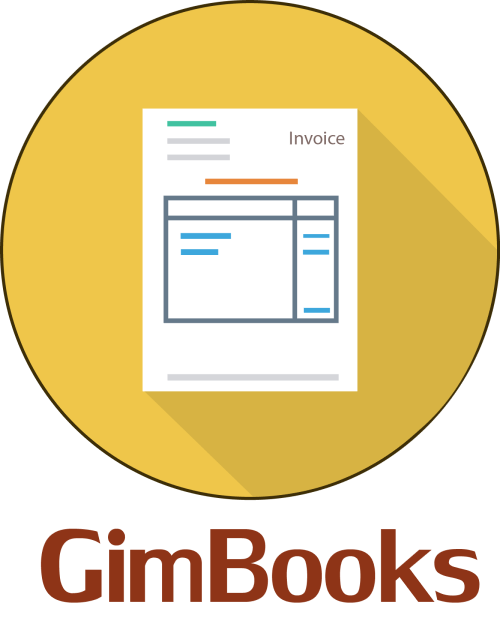MSME Loan- Government’s Criteria for MSMEs

The Indian government understands how crucial MSMEs are to the economy's growth and job creation. To help your MSME business thrive, the government has launched various initiatives, including providing access to affordable loans. MSME loans are essential for small businesses to start, expand, and modernize their operations.
The government has established specific criteria on the basis of the type of MSME and their turnover to ensure that these loans reach eligible MSMEs and are used effectively.
The following table will help you to understand more about the business loans approved on the basis of their turnover-
Basic eligibility criteria for MSME loan schemes lays emphasis on business owners meeting certain government-defined criteria. You can apply for MSME loans after meeting the following criteria include:
-Business Size: Your business must be classified as a micro, small, or medium enterprise based on your investment in equipment or machinery and your annual turnover.
-Promoter's Contribution: You or your business partners must contribute a minimum percentage of the project cost, demonstrating your belief in the business's success.
-Business Plan: You must have a well-structured business plan that shows your business's potential for profitability and long-term success.
-Credit History: Your business must have a satisfactory credit history and show the ability to repay the loan.
The Indian government aims to make our country Atmanirbhar by supporting MSMEs, facilitating additional credit of Rs 2 lakh crore for MSME businesses, reducing the cost of credit by 1 per cent, and expanding employment opportunities at the same time.
You can also learn how to get your first business loan here.
Now, let’s take a step forward and understand different type of loans for MSME businesses in the next section 👇
MSME Loan: Different Loans for Your Business
The landscape of MSME loans is vast, offering a variety of loans to suit the specific needs of your MSMEs. Here's a breakdown of the key types:
Term loans:
Structured machinery loans with fixed interest rates and repayment schedules, ideal for long-term financing needs like equipment purchases or property acquisitions.
General documents required for MSME loans -
KYC (Know Your Customer) documents:
- Proof of identity (e.g., PAN card, passport, driver's license)
- Proof of residence (e.g., electricity bill, rent agreement)
- Proof of business ownership (e.g., business registration certificate, partnership deed)
Financial documents:
- Latest audited financial statements of your MSME business (balance sheet, profit and loss statement, cash flow statement)
- Income tax returns for the past three years
- Bank statements for the past six months.
Project-related documents:
- Detailed project proposal outlining the purpose, scope, and financial viability of the project
- Quotations or estimates for the machinery to be purchased
- Proof of land ownership or lease agreement (if applicable)
Additional documents:
- Collateral documents, if required (e.g., property title deeds, fixed deposit receipts)
- Business insurance policies
- Copies of any relevant permits or licenses.
It's important to note that these are just general guidelines, and the specific requirements for your business may vary. It's always best to check with the lender directly to get a complete list of the documents you'll need to provide.
This could be helpful- Get the best out of your MSME loan
Line of credit for working capital of your MSME business:
A flexible borrowing facility that provides access to funds as needed for your MSME business, suitable for managing working capital or seasonal fluctuations.
General documents required for MSME loans -
The above-mentioned general documents remain the same, apart from-
Business-related documents:
- A detailed business plan outlining the company's history, current operations, future plans, and financial projections.
- A list of the company's key customers and suppliers
- Copies of any relevant permits or licenses:
A copy of the company's lease agreement or property title (if applicable).
And if you have a limited credit history, then Microloans might be the best option for your MSME business. Explore SME loans 👇
- Microloans: Smaller-sized loans designed for early-stage businesses or those with limited credit history for SMEs. Microloans typically range from INR 10,000 to INR 2 lakh, helping your SME business to grow with smaller capital requirements.
You can be flexible in your payment according to your SME's monthly revenue depending upon the terms and conditions of your microloan. Access to micro-loans is easy with the streamlined application process with minimal documentation including-
General documents required for SME loans-
Financial documents:
- Latest audited financial statements of your MSME business (balance sheet, profit and loss statement, cash flow statement)
- Income tax returns for the past three years
- Bank statements for the past six months.
- A detailed projected cash flow statement for the next 12 months.
Business-related documents:
- A detailed business plan outlining the company's history, current operations, future plans, and financial projections
- A list of the company's key customers and suppliers
- Copies of any relevant permits or licenses
- A copy of the company's lease agreement or property title (if applicable)
Additional documents:
- Collateral documents, if required (e.g., property title deeds, fixed deposit receipts)
- Business insurance policies.
- Personal guarantees from the company's directors or promoters.
Microloans for SMEs can be a powerful tool for entrepreneurs and business owners to achieve their goals and contribute to the growth of the Indian economy. By understanding the eligibility criteria, and government initiatives, your SME business can access the financing you need to fuel the growth and success.
- Government-backed loans: Loans offered by government agencies or financial institutions with favorable terms and interest rates, often catering to specific industries or sectors.
There are several government-backed loan schemes available for micro, small, and medium enterprises (MSMEs) in India. The specific documents required for each scheme may vary, but generally you'll need to provide:
General documents required for government approved MSME loan-
- Proof of identity: PAN card, Aadhaar card, passport, voter ID
- Proof of address: Utility bills, lease agreement, rental agreement
- Proof of business registration: Udyog Aadhaar registration certificate, GST registration certificate, MSME registration certificate (if applicable)
- Business plan: A detailed plan outlining your business goals, strategies, and financial projections
- Project report: A comprehensive report outlining the technical feasibility, financial viability, and market potential of your project (for project loans)
- Financial statements: Balance sheet, income statement, and cash flow statement for the last 3 years (or as required)
- Bank statements: Copies of your business bank statements for the last 6 months
- Tax returns: Income tax returns (ITR) for the last 3 years
- Guarantor details: Proof of identity and address, income tax returns, and financial statements of the guarantor (if required).
Additional Documents:
- Licenses and permits: Depending on your business activity, you may need to provide copies of relevant licenses and permits.
- Property documents: If you are offering property as collateral, you will need to provide land records, building plans, and other relevant documents.
- Market research reports: Evidence that supports the demand and potential of your product or service.
- Quotations and bills: Copies of quotations for machinery, equipment, and other costs associated with your project.
For Specific Schemes you may also require-
- Prime Minister Employment Generation Programme (PMEGP): Project report, detailed DPR report, caste certificate (if applicable), SC/ST/OBC certificate (if applicable).
- Credit Guarantee Fund Trust for Micro and Small Enterprises (CGTMSE scheme): Project report, financial statements, income tax returns, memorandum of association (MoA), articles of association (AoA). SC/ST/Women entrepreneur certificate, project report, business plan.
You can always contact the lender or visit the relevant government website for the finalizing terms and a complete list of required documents for your loan.
Recent Updates by the government to support your MSME business-
In Budget 2023-24, the government will provide a guarantee of Rs 9,000 crore (US$ 1.09 billion) to help MSMEs get loans without collateral. This will allow your MSME business to borrow an additional Rs 2 lakh crore (US$ 24.41 billion).
The government will provide Rs 3 lakh crore (US$ 40.85 billion) in automatic loans for businesses. This will make it easier for businesses to get loans without having to provide collateral.
Here’s more about recent updated on MSME loan schemes by government:
- Enhancing Access to Credit:
Access to finance remains a critical challenge for MSMEs. To address this issue, the government has introduced various schemes to facilitate credit availability.
- Credit Guarantee Scheme for Micro and Small Enterprises : CGTMSE scheme provides collateral-free loans to MSMEs, reducing the risk for banks and encouraging lending to this sector.
- Emergency Credit Line Guarantee Scheme: ECLGS scheme was Introduced in response to the COVID-19 pandemic, ECLGS provides additional credit support to MSMEs to help them navigate economic disruptions.
- Prime Minister's Employment Generation Programme: PMEGP MSME loan scheme provides loans of up to Rs. 25 lakh to unemployed youth and women who want to start their own businesses.
- Pradhan Mantri Mudra Yojana: PMMY MSME scheme offers microloans to non-corporate, non-farm MSMEs to support their entrepreneurial endeavors.
- Promoting Technology Adoption:
Technology adoption is essential for your MSME business to enhance productivity, improve quality, and expand your reach. The government has undertaken several initiatives to promote technology adoption among MSMEs, such as:
- Technology Upgradation Scheme: TEUS scheme provides financial assistance to MSMEs for upgrading their technology and processes.
- Industrial Information Technology (IT) Scheme: This scheme supports MSMEs in adopting IT solutions to improve their business efficiency and competitiveness.
- Enterprise Development Centers (EDCs): EDCs provide training and consultancy services to MSMEs on technology adoption and digital transformation.
Read here- Best SME Loan for commercial purposes. - Expanding Market Opportunities: MSMEs often face challenges in accessing wider markets. To address this issue, the government has implemented initiatives to expand market opportunities for MSMEs, including:
- Public Procurement Policy: The government reserves 25% of its procurement from MSMEs, providing them with a larger market share.
- Government e-Marketplace (GeM): GeM provides an online platform for MSMEs to participate in government procurement processes.
- Cluster Development Programme: This program supports the development of MSME clusters to enhance their competitiveness and market access. These initiatives demonstrate the government's commitment to supporting the growth and development of the MSME sector.
You can also use these marketing strategies for your MSME & SME business!
By addressing the challenges faced by MSMEs and providing them with the necessary support, the government aims to empower these enterprises to play an even more significant role in India's economic journey. These measures will help your MSME business to get the financial support required to grow and create jobs.
Business Loans: Fueling Your Business Growth
By harnessing the power of business loans, your MSME business can unlock their true potential, driving your business growth, creating employment opportunities, and contributing to the overall prosperity of their communities.
To streamline your bookkeeping and accounting growth, make your documents GST complaint, and stay ahead in your industry by streamlining your documents today!
Tap to know how GimBooks GST Login can help easily and more quickly in filing your gst.
Also, read-

2. File gst online-with gst invoice manager






